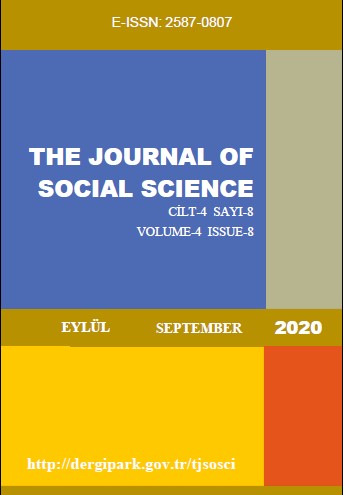THE DIVINE UNITY IN AND BEYOND NATURE: A COMPARATIVE STUDY IN WALT WHITMAN’S AND JALAL AD-DIN MUHAMMAD RUMI’S ECSTATIC POEMS
THE DIVINE UNITY IN AND BEYOND NATURE: A COMPARATIVE STUDY IN WALT WHITMAN’S AND JALAL AD-DIN MUHAMMAD RUMI’S ECSTATIC POEMS
Author(s): Melih KÖKCÜSubject(s): Poetry, Comparative Study of Literature, Other Language Literature, Theory of Literature
Published by: Dicle Üniversitesi, Sivil Havacılık Yüksekokulu
Keywords: Sufism; American Transcendentalism; Poetry; Jalal ad-Din Muhammad Rumi; Walt Whitman;
Summary/Abstract: As of today, the teachings of Rumi, Ibn al-Arabi and other Sufi mystics are enjoying a considerable revival in the United States. Especially ecstatic poems of Jalal ad-Din Muhammad Rumi have sold hundreds of thousands of copies recently, making him a best-selling poet not only in the United States but also in other many countries. The roots of American fascination for Sufism, however, reach as deep as the nineteenth century when American transcendentalism appeared as an expression within Romanticism as a literary movement. This paper aims to compare the concept of the Divine Unity in both seemingly unrelated philosophical movements in terms of how the ecstatic poems of Walt Whitman and Jalal ad-Din Muhammad Rumi transcend physical existence in nature to see the truth of the universe, which means, for all of them, the unity with God. Some studies, albeit clear differences between two traditions, show evidence to commentate that their mystical and transcendental tenets share a basic understanding of human desire leading to the Divine Unity. Two religious and philosophical movements argue about omnipresence and omnipotence of God and in this point nature plays a crucial role as God’s perfect manifestation. The ascetic poems of Rumi, the thirteenth-century Sufi Muslim philosopher born in today’s Afghanistan, and the transcendental poems of Whitman, the nineteenth century Christian transcendentalist from New York, are bedecked with similar natural elements to see what lays beyond form in compossible nature.
Journal: The Journal of Social Science
- Issue Year: 4/2020
- Issue No: 8
- Page Range: 633-643
- Page Count: 11
- Language: English

